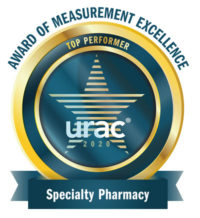 The Tennessean published a thoughtful article this morning about the opioid epidemic in our state. First and most importantly, my heart goes out to any Tennessean that has lost a loved one or friend to an overdose of opiates. As my scorecard indicates, we understand this is a major problem and are committed to winning this battle. With the passing of Tennessee Together in 2018 (and modifications to the law) in 2019, Tennessee still has one of the most stringent laws in the country in regards to legal opiate prescriptions being filled, with the majority of those prescriptions being only for 3 days.
The Tennessean published a thoughtful article this morning about the opioid epidemic in our state. First and most importantly, my heart goes out to any Tennessean that has lost a loved one or friend to an overdose of opiates. As my scorecard indicates, we understand this is a major problem and are committed to winning this battle. With the passing of Tennessee Together in 2018 (and modifications to the law) in 2019, Tennessee still has one of the most stringent laws in the country in regards to legal opiate prescriptions being filled, with the majority of those prescriptions being only for 3 days.
In the article, my former company Reeves-Sain Extended Care, was listed as one of the largest distributors of opioids in our state. I would like to share that we were one of the largest pharmacy providers to hospice patients in the state of Tennessee as well as ten other states. Extended Care provided medication to patients dealing with end of life due to cancer, COPD, congestive heart failure and/or other chronic, complex or rare diseases. These patients need pain-relieving medications—including opiates—and we were called as a company to come alongside them and their families during a very challenging time. TwelveStone Health Partners continues to support hospice organizations but in a smaller footprint. As a specialty pharmacy organization, we have expanded our focus in supporting those with chronic conditions with a higher level of service that they deserve in regard to medications, infusions and enteral services.
In my role as a Senator, I am also blessed to be able to join with other legislators in creating new laws to win the battle against opiate abuse in Tennessee through more effective law enforcement, treatment and prevention including the following:
Strengthening Penalties for Fentanyl Senate Bill 798
Fentanyl is a synthetic opioid that is 50 times more potent than heroin and 100 times more potent than morphine. It is used before surgery as an adjunct to anesthesia and in some cases for acute pain, like advanced cancer. It is commonly mixed with other illegal drugs like heroin, cocaine, and counterfeit prescription opioids. According to the Tennessee Department of Health (DOH), fentanyl, when mixed with heroin or other drugs, is a leading cause of opioid deaths in Tennessee. This legislation:
- Strengthens penalties for trafficking fentanyl, carfentanil, sufentanil, remifentanil, or any analogues, mirroring the same weights used to define punishments for heroin.
- Makes it a Class B felony to knowingly manufacture, deliver, or sell 15 grams or more of these substances, while penalties would be punishable as a Class A felony if it involves 150 grams or more. (Currently, the threshold for a Class A felony for fentanyl is 2,000 grams.)
Status: Public Chapter 201 / Sponsored by Johnson, Yager, Akbari, Hensley, Jackson, Massey, Rose, Stevens, White, Yarbro
Alternative Pain Treatments Senate Bill 194
- Further defines “alternative treatment” in Tennessee law to include chiropractic care, physical therapy, acupuncture, and other such treatments that relieve pain without the use of opioids.
Status: Public Chapter 117 / Sponsored by Watson, Crowe
Substance Abuse Treatment and Mental Health Parity Senate Joint Resolution 181
- Calls for mental health parity stating that substance use disorder and opioid use disorder are diseases and should be insured in the same manner as other diseases, such as diabetes and heart disease.
- Aims to expand access to substance use disorder treatment options and motivate payers to reimburse specialists providing services. At least five states and the American Medical Association have taken steps to comprehensively remove roadblocks for treatments of patients with substance use disorder and opioid use disorder.
Status: Signed by Governor / Sponsored by Briggs, Massey
Opioid Prescribing Practices / Senate Bill 810
- Amends limits placed on opioid prescriptions under the TN Together legislation approved by the General Assembly last year.
- Removes unintended barriers that could prevent patients from receiving legitimate and effective pain management treatment, such as post-operative and palliative care medications, while still keeping opioids out of the hands of abusers.
- Allows providers and patients to voluntarily request a partial fill, while encouraging providers to write prescriptions for the lowest effective amount.
- Amends the current twenty-day prescription of opioids for major surgeries to a thirty-day prescription. This action would make the length of opioid prescriptions for three, ten or thirty days. For example, major surgeries such as knee and hip replacements, orthopedic neurological spine surgeries, etc. would fall under thirty-day prescriptions. Ten-day prescriptions would be used for such surgeries as appendectomies, C-sections, ACL/MCL repairs. Three-day prescriptions would be used for procedures such as tooth extractions or kidney stones.
- Ensures patients who have undergone major surgeries are receiving the pain medication they need to get out of bed, go through physical therapy and heal.
Status: Public Chapter 124 / Sponsored by Reeves, Briggs, Hensley, Haile
Death Penalty and Fentanyl / Senate Bill 1368
- Strengthens Tennessee’s death penalty law as it affects offenders who knowingly sell or distribute the most dangerous drugs, including fentanyl, with the intent and premeditation to commit murder.
- Adds an aggravating circumstance for the imposition of the death penalty or life without the possibility of parole if the defendant knowingly sold or distributed a substance containing fentanyl, carfentanil, or other Schedule II controlled substances.
Status: Signed by Governor / Sponsored by Yager, Roberts
We are also working on mandates to provide prison inmates with substance abuse treatment so that when they are released—as most are—they will be less likely to return to a life of addiction and crime. Additionally, we are working to provide more resources to law enforcement to help them increase efforts to get illegal drugs off the streets, especially in those hard-hit areas battling the use of heroin.
I want Tennesseans to rest assured that we are working hard on many fronts to win this battle, but we must do it in an intelligent and intentional manner as providers, legislators and patients. A strategy that addresses the issues on all fronts but doesn’t punish the prescribing physicians who deal with patients who need comfort and care at a higher level as they face the end of their journey.















